 If you feel like you are limping into 2024, you are not alone. Don't get me wrong; I appreciate all the motivation and encouragement to start the year off strong. I, too, have eaten my weight in sugar and cheese over the holidays, and I, too, am looking for ways to reset, recharge, and recommit. I'm definitely wanting to jump on the wagon with everyone else who is resolving to eat healthier, exercise more regularly, and read through the Bible this year. I want to do better, be better, live my Best. Life. Yet. But the transition from 2023 to 2024 feels a bit shaky for me, and I'm having trouble finding my footing. Anxiety and grief from this previous year are weighing on me as I take my fist steps into this new year. Most days, I feel like I'm stumbling alongside the moving wagon of good intentions but can't seem to actually get enough momentum to hurl myself on it. Maybe you can relate? New Year's Resolutions are about modifying and improving things we can control: our behaviors, routines, and habits. That's why the motivation and inspiration this time of year can be really effective, at least for awhile. Change requires effort. So we keep showing up. We do the hard work to grow, to get healthier, to repeat the desired actions that will create the positive habits that will produce a better life. God grant me the courage to change the things I can. But what about all the things we can't control? For some of us, the promise of a new, better year is over-shadowed by the difficult circumstances rolling into the new year with us. Just as our troubles didn't magically disappear over the holidays, they aren't going to vanish into thin air in 2024. We may be facing hard realities we are powerless to change and, for a few of us, may even grow harder with each passing day, week, and month of the new year. Some of my friends are caring for aging parents or spouses whose health is rapidly declining. My mom was diagnosed with an aggressive type of cancer eleven years ago, right before Thanksgiving, and by Christmas we knew it was both inoperable and incurable. As we looked ahead to that new year, it wasn't through the lens of high hopes and new dreams; rather, we couldn't help but wonder what kind of grief awaited us. What would Easter and Mother's Day look like? During which month would we be saying our goodbyes and planning her funeral? Some of us are walking through some terribly difficult seasons right now. What we need, more than anything else, is peace. But how can we have peace when life around us is in chaos? When broken relationships, financial hardship, addictions, sickness, mental illness--and a whole slew of troubles we cannot control or fix--touch us and the ones we love, keeping us up at night and following us through our days like a dark shadow? Where can we find peace when life is a mess? God grant me the serenity to accept the things I cannot change. I don't know about you, but when I am craving peace I look for reassurance in what is observable. Measurable. Tangible. I want to see something with my eyes and hear certain words with my ears. I want concrete data. How would you finish this sentence? If only ________________________________________________________, then I would have peace. (. . . then I could sleep well at night. . . . then I could relax and enjoy life . . . ) I hate to be the one to say it (as much to myself as to you), but if our peace is dependent on anything we wrote in that sentence above, it will remain out of reach. Sure, we may have temporary moments of relief and reassurance--glimmers of serenity--but only until the next disappointment, the next phone call bearing bad news, the next argument, the next unexpected expense, the next bad scan, the next relapse. . . . only until the next shoe drops. Jesus offers us something truly amazing. He offers us peace that is not attached to our circumstances or particular outcomes. Peace that transcends our understanding. It is peace unlike any reassurance the world or any person can offer us. It is not dependent on what we see with our eyes or hear with our ears or experience in this life. It strips uncertainty of its power over us and guards our hearts and our minds. It is a supernatural gift. “I am leaving you with a gift—peace of mind and heart. And the peace I give is a gift the world cannot give. So don’t be troubled or afraid. (John 14;27) "I have told you all this so that you may have peace in me. Here on earth you will have many trials and sorrows. But take heart, because I have overcome the world.” (John 16:33) You may not be able to control what is happening around you or how 2024 unfolds, but here are some truths you can absolutely count on: 1. God is good.
2. God knows.
3. God is with us.
4. God is able. (Right now, this is my favorite attribute of God.)
There is truly no peace like the peace that Jesus gives, and it is ours for the taking. It's available to us in every moment, regardless of what is happening around us, as we keep our eyes on Him. I'm craving a peace that is more than fleeting. I'm longing for a sustaining, enduring peace as I abide in His love and steadfastly trust in Him. You keep him in perfect peace whose mind is stayed on you, because he trusts in you. Trust in the Lord forever, for the Lord God is an everlasting rock. (Isaiah 26:3-4) My prayer for 2024 is that we would indeed have courage and strength to grow, improve, and change the things we can; and for all that is outside the scope of our control. may we grow in our ability to trust our good, loving, all-knowing, always-with-us, all-powerful God. May each new day bring us closer to Him as we let His peace rule in our hearts and minds (Colossians 3:15). The Serenity Prayer God grant me the serenity to accept the things I cannot change, courage to change the things I can, and wisdom to know the difference. Living one day at a time, enjoying one moment at a time, accepting hardships as the pathway to peace. Taking, as Jesus did, this sinful world as it is, not as I would have it, trusting that He will make all things right if I surrender to His will, that I may be reasonably happy in this life and supremely happy with Him forever in the next. Amen. -written by Reinhold Niebuhr, an American theologian, in the early 1930s This quote has been on my mind since my friend sent it my way a couple of months ago. I keep coming back to it, and it is shaping the way I think about prayer.:
"Regardless of what crisis or complexity may be threatening to engulf your life, God is at work. You may not see it, but you need to know it’s true. And He’s not just doing one or two or a few things in that situation. He is doing a thousand or more things." -Nancy Leigh DeMoss Especially over these last couple of weeks, I have felt as if someone clicked, dragged, and dropped me inside of these words. As our family has walked through a recent crisis, as we've faced complexities and problems that threatened to engulf us, as our friends have surrounded us, lifted us up, and carried us in prayer, we've seen God move and protect and provide and open the way before us in ways we never could have imagined. In ways we could not have orchestrated on our own. We've seen circumstances play out in such a way that, when we look back and put the pieces together, we realize a number of seemingly random, separate things that worked together for our good. This idea of God working in a thousand or more ways that we cannot see reminds me of a story in Scripture found in 2 Kings 6. The king of Aram had sent his army to capture Elisha the prophet (the man of God) and his men. 15 When the servant of the man of God got up and went out early the next morning, an army with horses and chariots had surrounded the city. “Oh no, my lord! What shall we do?” the servant asked. 16 “Don’t be afraid,” the prophet answered. “Those who are with us are more than those who are with them.” 17 And Elisha prayed, “Open his eyes, Lord, so that he may see.” Then the Lord opened the servant’s eyes, and he looked and saw the hills full of horses and chariots of fire all around Elisha. ". . . God is at work. You may not see it, but you need to know it's true. " Like Elisha's servant, I am often fear-stricken by what I see right in front of me. At times it has felt like an enemy army surrounding us. So I've been praying for God to open my eyes, that I may see what is really going on, in the vast spiritual world I cannot see with my human eyes, beyond the circumstances I'm facing. Maybe you need your eyes to be opened, too? I'm praying that I could see His army surrounding us and know that "those who are with us are more than those who are with them." Maybe you need this assurance, too? I'm remembering that our God is able to do immeasurably more than I can think or even imagine, according to His power at work within us (Ephesians 3:20-21). Maybe you need to be reminded, too? I'm realizing that God is even now answering prayers I've been praying for months and years. That in the midst of everything falling apart, God is at work, restoring, healing, and working things for our good. To him be glory . . . throughout all generations, for ever and ever! Amen. Sometimes we think of prayer as a last resort. When we’ve exhausted all our own efforts, abilities, ideas, and brain power, we say, “I guess the only thing I really can do is pray.”
Boy, is that backwards. Paul writes in Ephesians 3:20 that God “is able to do immeasurably more than all we ask or imagine, according to his power that is at work within us…” This means that whatever idea I have for how God could work in a situation, He’s got something far better. This means that anything I could possibly come up with for how God could answer or move is too limited. Any request I make is too small. Anything I can dream of (or even imagine) is incomplete. Too short-sighted. Too temporary. Let me say it again: God can do IMMEASURABLY MORE than all we ask or imagine, according to His power that is at work within us. We see the problems in front of us; God sees eternity. We see one or two things He could do; He sees a thousand. We are praying for that one person we love, for God to work on their behalf; God is working in innumerable ways around that person, in the lives of many more who are connected to them, because God’s love is SO MUCH GREATER than ours. The scope of His grace, love, purpose, power, and plan is beyond our understanding. His reach extends far beyond our little worlds. Isaiah 55:8-9 says, “For my thoughts are not your thoughts, neither are your ways my ways,” declares the Lord. “As the heavens are higher than the earth, so are my ways higher than your ways and my thoughts than your thoughts.” Prayer is not meant to be our last resort. It needs to be our first line of defense, our initial response to what is happening around us, our knee-jerk reaction to the concerns, triggers, and disappointments we face every day. And if all of this is true (which I 100% believe it is), then here is the best news: I don’t have to figure it out. I don’t have to tell God what to do. I can pray with a surrendered heart, from a posture of humility, and with great anticipation knowing that He is going to work in ways I can’t. Even. Imagine. For His purposes, praise, and glory. Amen! Big resolutions intimidate me. You know . . . grandiose, mind blowing, epic promises of transformation. As in, by the end of 2022 I will be a different woman! You won't even recognize me after I . . .
Yep, it's going to be a great year. But first, I need to go take a nap . . . You may have guessed it by now - I typically do not make resolutions. At least not these type of too-specific, too-vague, too-unrealistic kinds of promises. To be clear, I think there are times and seasons when these kinds of resolutions may be exactly what we need. Sometimes we reach a point where something's gotta give. Desperate times call for desperate measures. We need to make big changes if we want to change our lives in big ways. But most years, what I really need is the power of small changes. I need bite-sized action steps. I need what John Trent, in his article, Course Correction (first published in Thriving Family Magazine, 2009), calls the "power of 2-degree changes." Using the illustration of a steering wheel in a car, he demonstrates the power of small shifts on the course of our lives. When you turn a steering wheel just 2 degrees to the right or left, over time, it changes the direction of where you are headed. 2-degree changes - both positive and negative - have the potential to run us off the road or move us in a better direction. Over time, these small adjustments add up to a cumulative impact on our lives. Small, steady changes have the power to transform our physical, mental, emotional, and spiritual health as well as the health of our relationships. So instead of big resolutions hanging over my head, I'm thinking of smaller, doable shifts:
If you haven't yet taken some time to look over that last year and reflect on where you've been, and then look ahead and think about where you are headed, I'd encourage you to do that. I have been spending some time reflecting on this and here are some helpful questions I've explored: What healthy habits am I already doing, and how can I continue/increase these as I head into 2022? What habits have I developed that are unhealthy, and how can I move away from these and make better choices? (This may include unhealthy relational patterns or patterns of addiction - wherever we may be moving towards things as a way to escape/cope with stress, pain, or loneliness.) What relationships are life-giving? How can I intentionally increase connection with people who inspire, encourage, challenge me (in good ways) and fill my bucket? What relationships may be pulling me in a direction I don't want to go? Do I need to distance myself from or change the way I am engaging with certain people as I create healthier boundaries? Are there people whom I need to forgive or ask forgiveness for something I have done? Where has God been moving-stirring-prompting me in service or ministry to others? How can I grow and develop the gifts he has given me for the good of others and to bring Him honor? Where might God want me to increase giving my time, energy and resources? Where might God be wanting me to pull back and refocus my attention? Is there an area of my life where I need healing, and is God leading me to get help from a trusted friend, leader, or counselor? How have I grown closer to God over this past year? Was it through a Bible study, small group, time spent alone with God in prayer? How will I increase this, and what pathways enable me to best connect with God? Looking at what is and is not working is incredibly important as we move forward and think about the small shifts we want to make in 2022. One final thought: While most of us experience a few monumental, pivotal moments in life, most of our growth and transformation happens through the small, steady changes we make from one day to the next. I love how Paul David Tripp puts it in his book, New Morning Mercies, A Daily Gospel Devotional: Whether our resolutions are big or small, I pray that 2022 will be a year of increasing growth and transformation for us all. May we daily draw closer to Jesus as He continues the good work He began in us. (Philippians 1:6)
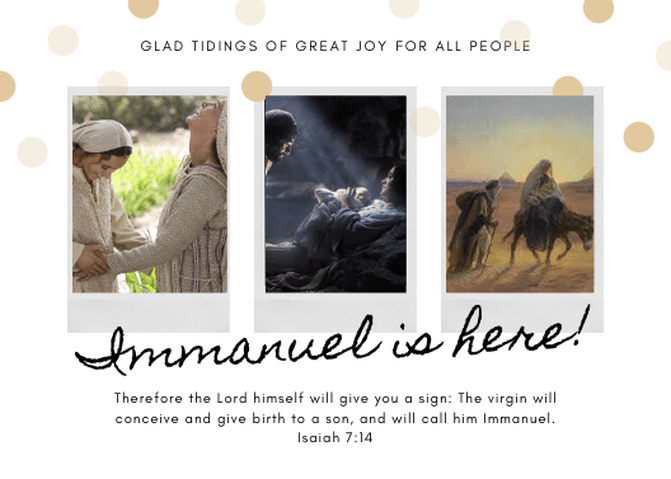 "It's the most wonderful time of the year . . ." "From now on our troubles will be miles away . . . " But what if it's not the most wonderful time of the year? What if your joy feels miles away, your troubles feel closer than ever, and your burdens only feel heavier as we approach Christmas and New Year's? The thing about the holidays is they have a way of magnifying both the good and the hard. If, for example, you are enjoying harmonious relationships, good health, or have celebrated a milestone over this last year: a marriage or birth in the family, a new job or move, then your joy will be that much sweeter. And, on the flip side, if you have lost a loved one, are experiencing relational or financial strain, or maybe you or someone you love has received a difficult diagnosis, the emotions that go along with those things may also be heightened. Some of us just feel weary with the daily grind of life, and some of us have found ourselves pulled into the hustle and bustle, to the tasks and to-do lists, to the overspending, overcommitting, and sometimes overwhelming stress and chaos of the season. Joy is a spiritual quality - a fruit of the Spirit - so unlike happiness (which is an emotional response to good things that happen in our lives), it is not tethered to our circumstances or other people's behavior or choices. I believe we can experience and cultivate a deep, abiding joy that stays with us even in hard seasons. But first, we have to identify those things that rob us of joy: 1. Stress: Whether it's extra financial strain brought on by the holidays, finding gifts for everyone, stressful family events, tasks such as putting up decorations, shopping, and food preparations, busyness, the pressure to produce the “perfect” holiday, or taking on more than we can handle each year - holiday stress has a way of snowballing and draining us of joy and energy. 2. Comparison: Theodore Roosevelt said, “Comparison is the thief of joy.” Especially this time of year, it can be so easy for us to compare. As Christmas cards come in, we enjoy seeing people's highlights from the past year, But sometimes these Christmas cards can feel like the ultimate Instagram post - and they don't often reflect the reality of everyday life. If we aren't mindful of our tendency to compare, we can find ourselves making up stories about how great other people have it. We can easily become discontent with what we have or don't have, what we've done or not done, who we are and who we are not. It would serve us well to remember that the circumstances surrounding the birth of Jesus were not glamorous or easy. He was born into a hostile, broken world. If Mary had sent out a card that first Christmas, I wonder if it may have looked something like this: 3. Expectations: On others. On ourselves. Expectations others place on us. Trying to make everything perfect and everyone happy. Expectations about the way we think things should be . . .When we set our expectations unrealistically high, we set ourselves up for disappointment. This, too, robs us of joy. 4. Isolation/Doing it alone/Pretending: Most of us have experienced some degree of isolation over the past year and a half. During quarantine we weren't able to see family and friends. Some of us still are not back to our regular schedules and social lives. Many of us are still working from home. Still doing online church. We have been cut off in different ways from connection with others. And there is another kind of isolation that is particularly painful. It's the loneliness we feel even when surrounded by others. Whether we don't feel safe to open up, or whether people just don't seem interested in knowing what is really going on in our lives, we can feel incredibly alone and isolated from others. I did some of my own "research," asking women to share what is robbing them of joy right now Here are some of their answers: I'm always wondering:
Family get-togethers: Now more than ever, differences of opinions, experiences, amped up reactivity/emotions are causing division in our families. Whether it's politics, the pandemic, religion, controversial issues, one woman said, “I am thinking what robs joy is having people you love walk away from you because you don't believe the same way they do.” Navigating loss during the holidays: Another woman shared, “Celebrating without my Dad - he died suddenly in mid-Sept. My family is devastated and grieving. Every day is still hard and I fear the holidays will be even harder.” This resonated deeply with me, because nine years ago my mom was diagnosed with cancer a few days before Thanksgiving. By Christmas, we knew it was stage three, inoperable, and incurable. Everyone - my mom, my sisters, and their families - decided to come to our house for Christmas. All we knew for sure is that we wanted to be together. We needed to be together. We prepared our favorite foods, decorated the house, and piled presents around the tree. We systematically moved through the holiday, doing our best to keep everything as normal as possible for the children, but those of us who knew about Mom’s diagnosis were wondering the same thing. Will this be our last year together? God, what kind of grief will this new year bring with it? This is now our eighth year without Mom. Her birthday in October and the holidays have hit me hard this year. I told my husband, "It's not just that I miss Mom - I miss her everyday. But I miss the way our family used to be. I'm grieving the way her loss has changed things." You see, my mom was like the glue in our family. Even with sometimes difficult, tricky sibling dynamics (and now with each of our kids growing up and those dynamics multiplying), we each knew the special place we had with Mom. The special place we had in her heart. We each knew we were loved and accepted. In a way, she was an equalizer. Sometimes it’s still really hard to do this without her here. One of the things I've been focusing on this season is how I can SIMPLIFY. Because If we desire to celebrate and focus on Christ, create meaningful connection with others, and cultivate joy during this season, I think we have to start with simplifying. Scaling down. Scaling back. I'm thinking “Christmas Un-plugged.” This can include shortening our to-do lists, holding on to the traditions that matter most and letting go of the ones that don’t, and maybe even starting some new ones. Our youngest works as a hostess in a restaurant and has to work on Christmas afternoon. Since it will only be three of us at home that evening (our oldest and her husband are not coming home this year), we've decided to go eat at the restaurant. It's super different, but this year is already really different for us, so I'm open to trying something new. I've also been checking my motives, resisting the pull to try to impress others, control outcomes, or do anything that distracts or detracts me from the true meaning of Christmas. As we look throughout the Christmas story we find JOY everywhere. This first "snapshot" begins with an appearance from the angel Gabriel, but before he visits Mary he appears first to a priest named Zechariah… Luke 1:13-14 But the angel said to him: “Do not be afraid, Zechariah; your prayer has been heard. Your wife Elizabeth will bear you a son, and you are to call him John. He will be a joy and delight to you, and many will rejoice because of his birth…" Luke 1:28-31 The angel went to her and said, “Greetings, you who are highly favored! The Lord is with you.” Mary was greatly troubled at his words and wondered what kind of greeting this might be. But the angel said to her, “Do not be afraid, Mary; you have found favor with God. You will conceive and give birth to a son, and you are to call him Jesus." We see joy two-fold with Zechariah: first, with answered prayer for him and Elizabeth, then expanded to "many" through John’s unique calling to go before the Messiah and prepare the way. And twice in these texts we see the message: "Do not be afraid." Partly because Gabriel is an angelic being and it appears that every time he shows up people are terrified! But also because fear and anxiety are part of our human condition. Our tendency, especially when facing the unknown, is to fear. For many of us, the anxieties that plague us throughout the year are heightened during the holidays - the heavy burdens we carry only feel heavier during this season. This message “Do not fear” is absolutely for us. Fearful thoughts often begin with these two words: What if . . . What if the treatments don’t work? What if my child loses his/her way? What if we can’t resolve these relational problems? What if I lose my job, fail, am rejected or alone? Notice that Gabriel first said, “The Lord is with you. . . .” and then, “Do not be afraid.” Maybe you’ve heard it said that God does not call us to do something without equipping us to do it. This is that. The truth and reality of God's presence enables us to not be afraid. It's why David writes “Even though I walk through the valley of the shadow of death, I will fear no evil, for you are with me.” (Psalm 23) The reality of God’s presence – Immanuel (God with us) – changes our What if . . .? to Even if . . . We are not given the assurance or promise that our What ifs will not happen. But we are promised His presence to help us in every moment of our Even ifs. “You fill me with JOY in your presence.” Psalm 16:11 1. WE FIND JOY IN GOD’S PRESENCE That last Christmas with my mom, we went to the Christmas Eve service at our church and these lyrics became my prayer for us: O come, Thou Day-Spring Come and cheer Our spirits by Thine advent here Disperse the gloomy clouds of night And death’s dark shadows put to flight Rejoice, rejoice, Emmanuel Shall come to thee, o Israel We needed the hope of Christmas more than ever before. Our world and our hearts were breaking into pieces, and we needed the presence of Emmanuel, God with us. And we’d need it every day of the New Year. Whatever you may be facing today, I want to invite you to bring your anxieties to God. “. . .because he cares for you.” 1 Peter 5:7 “When the cares of my heart are many, your consolations cheer my soul.” Ps 94:19. Two words in Hebrew are used for the phrase "cares of my heart" in this text: the first means "anxious and disquieting thoughts"; the second means "deep within your body." And the word for "consolations" is this picture of God taking the raw and tender places of our souls and smoothing his healing balm over them. Jesus is our Wonderful Counselor And then, as we bring our cares to God, as we are comforted, our hearts are cheered and filled with joy. And we find that He is completely trustworthy. 2. WE FIND JOY IN TRUSTING HIM I remember a conversation I had with my mom, not long after her diagnosis: She told me she believed she would be healed, but that no matter what happened, she was in a win-win situation. If she was healed, she won more time with her family. And if she died, she won eternity with her Savior. Either way, her future—and ours—was secure. The Lord is my strength and shield. I trust him with all my heart. He helps me, and my heart is filled with joy. I burst out in songs of thanksgiving. (Psalm 28:7) “May the God of hope fill you with all joy and peace as you trust in him, so that you may overflow with hope by the power of the Holy Spirit.” (Romans 15:13) Let’s look at another snapshot from Mary’s life… Luke 1:39-45 At that time Mary got ready and hurried to a town in the hill country of Judea, where she entered Zechariah’s home and greeted Elizabeth. When Elizabeth heard Mary’s greeting, the baby leaped in her womb, and Elizabeth was filled with the Holy Spirit. In a loud voice she exclaimed: “Blessed are you among women, and blessed is the child you will bear! But why am I so favored, that the mother of my Lord should come to me? As soon as the sound of your greeting reached my ears, the baby in my womb leaped for joy. Blessed is she who has believed that the Lord would fulfill his promises to her!” Luke 1:46-55 And Mary said: “My soul glorifies the Lord and my spirit rejoices in God my Savior, . . ." 3. WE FIND JOY IN AUTHENTIC CONNECTION What a gift for Mary and Elizabeth!! Very few would have believed what was happening to Mary - not even Joseph believed her at first, and he was a righteous man. So she goes to visit Elizabeth, perhaps not unlike the way a young, pregnant, unwed girl might go visit her aunt today. Elizabeth greets her and We find joy as we make relationships a priority - Connecting in practical ways (baking, shopping, playing games . . . ) and more deeply with safe people - sharing honestly with others. Meaningful connection with those who have vision to see God at work, who will believe with you that the Lord fulfills His promises. Another snapshot from Mary’s story: After the angel tells her she will conceive by the Holy Spirit and give birth to the Son of God, and that even her relative Elizabeth is pregnant in her old age, he proclaims: “For no word from God will ever fail." And Mary replies, "I am the Lord’s servant, may your word to me be fulfilled.” Mary’s response was deeply rooted in surrender. And it reminds me another moment of surrender 33 years later - Jesus in the garden, on the night he was betrayed, arrested, and then crucified, he prays. “Not my will, but yours, be done.” It’s why the writer of Hebrews tells us to “fix our eyes on Jesus . . . who, for the joy set before him, endured the cross, scorning its shame, and sat down at the right hand of the throne of God. (Hebrews 12:2) 4. WE FIND JOY IN SURRENDER. As we surrender outcomes, control, the way we think things should be, we find joy. We can say, even if this is not what we wanted, "It is well with my soul . . ." Even in the midst of our brokenness and sorrow, the faithful presence of Emmanuel is undeniable. We do not walk alone. The true hope of Christmas is not that our troubles will magically be far away, but that Emmanuel comes into our world, into our pain and grief, and brings true healing to every heart. One final snapshot… Luke 2:8-11 And there were shepherds living out in the fields nearby, keeping watch over their flocks at night. An angel of the Lord appeared to them, and the glory of the Lord shone around them, and they were terrified. But the angel said to them, “Do not be afraid. I bring you good news that will cause great joy for all the people. Today in the town of David a Savior has been born to you; he is the Messiah, the Lord. The JOY of Christmas – and everyday – is found in a person. 5. WE FIND JOY IN JESUS: For ALL who choose to prepare Him room, to worship Him as King, to trust Him as Savior, to surrender to Him as Lord . . . We can be sure of the place we have in His family - the special place we have with Him. Jesus is the glue. He is the Great Equalizer. We are so loved. And somehow this helps us to love others - even amidst tricky dynamics and complicated relationships. Whatever challenges we may be facing in our lives, He is Immanuel, God with us. We belong to Him. “Though you have not seen him, you love him; and even though you do not see him now, you believe in him and are filled with an inexpressible and glorious joy, for you are receiving the end result of your faith, the salvation of your souls. (1 Peter 1:8-9) As we experience the presence of Emmanuel, as we trust Him with all our hearts, as we authentically connect with God and others, as we surrender everything and every part of our lives to Him, as we draw near to Jesus, may we be filled with an inexpressible and glorious joy, at Christmas and into the New Year. 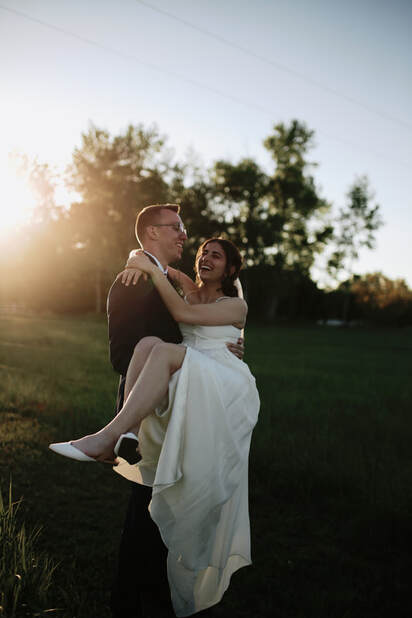 Our eldest daughter Kate recently married Steve at a very special, beautiful outdoor venue in northern Michigan - my sister's and brother-in-law's house! The day turned out pretty close to perfect, from the weather to all the carefully chosen details that made the ceremony and reception a truly meaningful and joyous event. If you had been there, you might have noticed that amidst the beautiful music, decorations, cocktails, yummy food, and heart-warming toasts, there was a healthy dose of "real marriage talk" sprinkled in. It wasn't ". . . And They Lived Happily Ever After . . ." because that is the language of fairy tales. In real life, "happily ever after" is never the way marriage plays out. My brother-in-law, Dave, officiated the ceremony (and then changed into his DJ clothes to get the party started!), and his message was not what you might expect at a wedding ceremony. Rather than warm and fuzzy, lovey-dovey fluff, he crafted a message inspired by real-life love and hope-infused truth. He talked about marriage as the perfect place for God to teach us how to love, how to forgive, how to lean into Him when it gets hard, and how to discover the power of God's grace for our own shortcomings as well as those of our spouse. Kate and Steve reflected an understanding of this in the vows they wrote and shared with one another before God and those who were present. And then later, when my nephew prayed a blessing over the food at the reception, he shared a few words of encouragement for the new couple. He too talked about how God would help them through the highs and lows and be with them in the good times and the hard times. 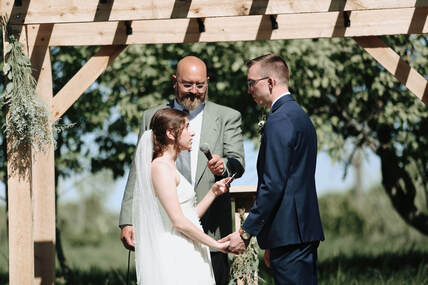 You see, it is not a question of "if" we will face challenges and hard seasons in marriage. It is a given. The better question is, "What will we do when the hard times come? To whom will we turn?" Bernie and I have been married for 27 years, and we are still growing. We are still learning how to love. We still hit some bumps in the road, and when we do, we know where to go for help. First we go to God. We go to our trusted circle of family and friends. We still get help from a counselor when needed. The ups and downs will always be a part of this journey. We have tried to normalize our struggles - to model what it looks like to "struggle well" - so that our daughters will not be surprised when they hit some bumps along the way. Our prayer is that Kate and Steve will always turn to God for help and keep Him at the center of their lives, and that they will turn to us, to their families, to their community of people who have pledged to walk alongside them in good times and in hard times. When we marry, we choose to become family with our spouse for the rest of our lives. I shared these words with Kate and Steve a few months before they took their vows: “I hope that on your wedding day you are crazy in love with each other. I hope you feel like no other couple on the planet has anything close to the amazing love you’ve found. And, I also pray that when those feelings fade—and they will—and when hard times come—and they will—that you will not be surprised. There will be times when loving one another will be as easy as breathing. You won’t even have to try. And there will be times when loving your spouse will be the hardest, most sacrificial thing you’ve ever done. In fact, you won’t be able to do it on your own. You will hurt each other more than you can imagine, and you will need God’s help to forgive. When you say, ‘I do,’ you are signing up for a life-long journey of transformation. You are pledging to love each other through the good and the bad, the best and worst of times, whatever comes your way, for the rest of your lives.” In his book Sacred Marriage, author Gary Thomas writes, “The beauty of Christianity is in learning to love, and few life situations test that so radically as does a marriage. . . . If we view the marriage relationship as an opportunity to excel in love, it doesn’t matter how difficult the person is whom we are called to love; it doesn’t even matter whether that love is ever returned. We can still excel at love. We can still say, ‘Like it or not, I’m going to love you like nobody ever has.’” Here are the Scriptures Steve and Kate chose as readings during the ceremony: This wedding was a blast. It was a celebration of real-life love and the God who shows us how to walk out our vows every day. Kate and Steve are beginning the adventure of their lives, and we truly could not be happier for them. I think these photos tell the story of God's faithfulness to so many of us as we have walked together, rejoiced together, and persevered together through life's ups and downs. Ephesians 3:14-21
For this reason I kneel before the Father, from whom every family in heaven and on earth derives its name. I pray that out of his glorious riches he may strengthen you with power through his Spirit in your inner being, so that Christ may dwell in your hearts through faith. And I pray that you, being rooted and established in love, may have power, together with all the Lord’s holy people, to grasp how wide and long and high and deep is the love of Christ, and to know this love that surpasses knowledge—that you may be filled to the measure of all the fullness of God. Now to him who is able to do immeasurably more than all we ask or imagine, according to his power that is at work within us, to him be glory in the church and in Christ Jesus throughout all generations, for ever and ever! Amen. 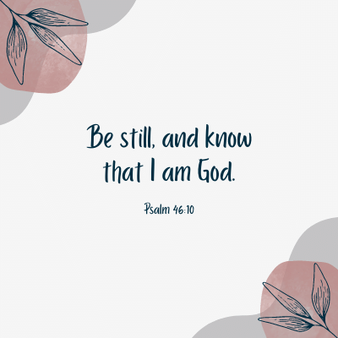 Why am I not afraid as we board this plane? It wasn’t that I wanted to feel my usual level of panic—it was just unexpected and, frankly, unexplainable. My fear of flying had started shortly after I became a mom, and over the last fifteen or so years, it seemed to get worse every time I traveled. I finally spoke to my doctor and he prescribed an anti-anxiety medicine for me to take right before I got on the plane; while it didn’t completely take away my fear, it definitely took the edge off. Now, after more than a year of being grounded because of the pandemic, I was flying to Little Rock from Chicago for work. My 15-year-old daughter, Brenna, was accompanying me, and not only was I not afraid to board the plane, I hadn’t felt anxious as we ate our Starbucks' breakfast sandwiches at the gate. I hadn’t felt nervous the night before as I drifted off to sleep, which was so unusual because normally I started worrying months in advance before a trip, panic settling in as I imagined the plane taking off and gaining altitude. Over the years I had learned some mental tricks to help manage my anxiety, such as not allowing myself to think about flying until a week before, running the numbers in my head of how many flights safely take off and land every day all over the world, and reminding myself that planes rarely crash—several things have to simultaneously go wrong for something catastrophic to happen. I was absolutely amazed at the calm I felt as we found our seats, stowed our carry-ons, and the plane took off. I actually enjoyed looking out the window as we ascended, seeing the landscape shrink beneath us. After a quick flight, we began our descent, I felt the wheels unfold and extend beneath the plane (which usually freaks me out), and then we landed. No big deal. These skies really are friendly! During the flight I thought numerous times about the mystery/miracle of not being afraid and wondered why I was not gripping the armrests and clenching my jaw--why my heart was not pounding within my chest. What was different? What had changed? It was as if a wall of peace had been erected in my mind that I couldn’t go around. Not that I wanted to—it was wonderful to be able to relax and actually enjoy my time with my daughter, traveling together to a new place. Brenna and I talked about the strange (and wonderful) phenomenon I was experiencing and she had a theory. After a year of having control over very little, including the pandemic with all its ramifications, major surgery with a potentially scary diagnosis, contracting Covid-19 with complications of asthma and pneumonia, and a significant change at my job, maybe I had built up a level of “immunity” to things that used to scare me. Brenna hypothesized that after navigating and surviving all of those difficult and scary experiences, flying was just one more thing to add to a handful of things that now seemed normal. Perhaps I was getting used to things being out of my control. A couple of days later, as we checked out of the hotel and headed to the airport, I again noticed the absence of fear as we were about to board another plane and fly home, and then this thought went through my mind. Flying the plane is not my job. Did you catch that? Because although that seems like a no-brainer observation, I don’t know that I had ever thought about it or acknowledged it. Flying the plane is not my job. It wasn’t my job to make sure we arrived safely to Chicago. That was the pilot’s job. That was the mechanical team’s job. It was the responsibility of the manufacturer and the airline and the air-traffic controllers, and whoever else plays a role in making planes and airports work the way they are supposed to. I am not even a tiny bit a part of that equation. I don’t know where all the chips fall, but I do know that I truly have nothing to do with it. None of it is my job. Ultimately, even when people fail to do their job well or evil is inflicted on innocent people, God is in control over everything. Even in moments when we are not safe with what is physically happening around us, we are safe in His care. He promises to never leave us or forsake us. He is our refuge and ever-present help in times of trouble. I can fret and worry and feel panicked in seat 18B, even though I have zero power to influence anything happening in that moment. Or, I can relax into the truth that even if something goes wrong, I am secure in God’s sovereign wisdom, love, power, and will. When it comes to anxiety, so much of mine—and maybe yours—has to do with trying to control things (and people) that are not in our control. In other words, things that are not our job. Fixing someone else’s issues. That’s not our job. Making sure our kids are happy all the time. That’s not our job. Making our spouses do what we want. Not our job. Rescuing other people from pain. Not our job. Impressing others. Not our job. Making other people like us. Not our job. Solving all Covid-related problems. Not our job. Managing our kids’ spiritual lives. Not. Our. Job. Controlling what other people think about us. I think you get it . . . You see, so much of what we worry about are things outside of our control. If I’m worried I may react in a way that is hurtful to someone else, then my job is to practice self-control. If I’m worried, however, that someone else may react in a way that is hurtful to me or someone I love, well . . . that is not something I can control. That is not my responsibility. Not my job. I don’t know how I will feel the next time I fly. And I don’t know if what I’m sharing here has the potential to help another soul who is afraid. But for me, and I think for all of us, the pathway to peace and a sense of calm even in the midst of chaos is surrender. We prayerfully—and with the help of the Holy Spirit—control what is within our power to control. Which is really only ourselves. For everything else, we practice letting go. We practice surrender. We practice it so much that we get really good at it. We learn to excel at recognizing the difference between what we can control and what we cannot. And the fruit we enjoy is peace. The writer of Psalm 46 begins with recognizing God as our refuge, strength, and ever-present help in trouble, then declares that because of this truth we will not fear, even though . . .(and then comes a list of truly catastrophic natural disasters…). We will not fear because the Lord Almighty is with us, the God of Jacob is our fortress. He rules over all. And then the Lord says, “Be still, and know that I am God.” In other words, we are not. Being God is not our job. He tells us to be still and not to fear, because He is with us. He alone is our fortress. How about you? What fears and anxieties are gripping your heart and mind today? It may be helpful to start your own list entitled “Not My Job.” Identify those burdens you are carrying that are weighing you down. Write it down. Then say it out loud in the form of a prayer. Share it with a friend. Don’t fret or worry. Instead of worrying, pray. Let petitions and praises shape your worries into prayers, letting God know your concerns. Before you know it, a sense of God’s wholeness, everything coming together for good, will come and settle you down. It’s wonderful what happens when Christ displaces worry at the center of your life. (Philippians 4:6-7, The Message) GUEST POST: HE RESTORES MY SOUL |
It is my joy to share this post from author and guest blogger Jennifer Perez, |
Feeling stressed? Anxious? Fearful?
(Both my hands and a foot are raised. Anybody else?)
I think it’s safe to say that most of us these days are struggling in some way or another. We need hope. We need truth. We need joy. And we need peace.
Like now, please.
In this season of anxiety, fear, and stress the Lord put on my heart to write a devotional designed to address these three very real and sometimes constant companions with the truth and hope of God’s Word. I’m excited to share this excerpt from my newly released 40-day devotional called She Laughs: A 40-Day Journey to a Heart Filled with Joy and Peace. My heart in writing this devotional is that as you dive deeply into God’s Word, you will experience a deeper joy and peace than perhaps you ever have before.
So with that little introduction, let’s look at Day 5 of the Devotional! You’ll notice that the day is broken down into several sections (most of the days of the Devotional follow this pattern):
Search My Heart: a time for you to write out everything on your mind that is causing you stress, anxiety, or fear
Scripture for the day: the most important part of each day!
Devotional: a short commentary on the Scripture
Meditation: a way to think deeply and intently on that day’s Bible verse (several meditation styles are used throughout this Devotional)
Reflect: ask yourself, “How does this apply to me today?”
Pray: a prayer thanking God for that day’s truth and asking him to help impress it on your heart and put it into practice
Let’s dive into Day 5!!
Search My Heart
(Really pause and take a moment to think about what is on your heart and mind. If you have a notepad or sheet of paper, jot down all of the things that come to mind.)
Scripture
“The Lord is my shepherd; I shall not want.
He makes me lie down in green pastures.
He leads me beside still waters.
He restores my soul.”
Psalm 23:1-3a, ESV
Devotional
One of my friends recently moved to Nashville from Houston, and they bought the most charming home on a couple of acres of land. Behind their home is a field lush with green grass. There are trees that line the back of the property, and a stream of crystal clear water has carved its way along the treeline.
Looking at pictures of her new property, I feel so at peace. I imagine what it would be like to lie down next to the stream in a hammock, read a couple of chapters of a good book, and gently fall asleep, fully at rest. Ahhh, that sounds amazing, doesn’t it?
Sweet friend, this is what the Good Shepherd offers our weary souls. While it may not be a physical place (yet), he leads us into the green pastures of his heart and the still waters of his peace. When you need a break from the chaos of your world, it is by his grace that you finally rest and give him your burdens, your chaos, and your worries. He lovingly and graciously restores your soul as a good Shepherd cares for his flock.
Meditate
Pull out your phone or computer. In your browser, go to images.google.com and type in the search box “field beside a stream.” Look through the images that pop up. Find the one that looks the most relaxing, calming, and restful. Reread Psalm 23:1-3a, imagining the Good Shepherd leading you to that pasture and that stream and refreshing your soul.
Reflect
(How does this verse apply to you today?)
Pray
(You can pray silently, out loud, or by writing down your prayer.)
I hope you enjoyed this excerpt from my Devotional!! I hope that even this little peek helped you feel more peace and joy!
Pressing on in faith, Jennifer

Jennifer Perez is passionate about encouraging women in their faith and pointing them to the hope of Jesus through her writing and speaking. With raw honesty and occasionally some humor, she writes devotionals and shares encouraging videos on her social media platforms. She blogs regularly at theencouragingmomblog.comhttp:
Jennifer lives in Houston, TX with her husband Mace and 2 children and daily misses her baby in Heaven. You can find her on Facebook @theencouragingmomblog and on Instagram @theencouragingmom.
She Laughs: A 40-Day Journey to a Heart Filled with Joy and Peace is an interactive devotional guide written to help you place your cares, worries, and fears into God’s loving hands. Throughout this devotional, you will engage with God’s Word using a variety of creative meditation styles that will allow his Word to sink deep into your heart, mind, and soul. You will also have opportunities to reflect on who God is, how you see him moving in your life, and how you can apply his Word each day.
As you work through this devotional, you will learn how to turn to God in complete dependence and trust. And when you do, you will experience true joy and peace in the days to come! Order book here
Jennifer lives in Houston, TX with her husband Mace and 2 children and daily misses her baby in Heaven. You can find her on Facebook @theencouragingmomblog and on Instagram @theencouragingmom.
She Laughs: A 40-Day Journey to a Heart Filled with Joy and Peace is an interactive devotional guide written to help you place your cares, worries, and fears into God’s loving hands. Throughout this devotional, you will engage with God’s Word using a variety of creative meditation styles that will allow his Word to sink deep into your heart, mind, and soul. You will also have opportunities to reflect on who God is, how you see him moving in your life, and how you can apply his Word each day.
As you work through this devotional, you will learn how to turn to God in complete dependence and trust. And when you do, you will experience true joy and peace in the days to come! Order book here

I had major surgery in December, so I am starting the new year the same way I ended the old one: SLOW. And while slow can be frustrating, it is also a gift. It has given me time with my family and rest like I’ve never had before. As my body heals and my mind clears, I’m looking ahead to the new year trying to catch some sort of vision. Resolutions? I’m really not good with those. One word for 2021? Nada. I’m looking into what seems like a clouded mirror.
When the pandemic first hit, I compared it to driving into a blizzard. It was disorienting and I couldn’t see very far up ahead. I didn’t know how long it would last. Heading into 2021 feels a bit like driving through fog. We may wish that turning the calendar to a new year would somehow magically propel us into a different reality, but the truth is that whatever we were dealing with in December has followed us into January.
If you experienced loss in 2020, grief will follow you into 2021 and needs your attention.
You may be praying for a loved one who is sick, or looking for a job, or trying to help your child who is struggling. Your marriage may still be hard, and you may still feel anxious or depressed over the reality we are living in. There is still much uncertainty, and like driving into a blizzard or through fog, there are a few things we can do:
1.)Stay alert. We wouldn’t use cruise control in a blizzard and none of us can afford to check out during this season.
2.)Slow down. Most of our external activities have slowed way down, but we have to be intentional to slow our internal worlds. To draw near to God and receive his peace.
3.)Make ourselves visible. Reaching out and connecting with others, and being honest about our struggles, is like turning on our hazard lights. It lets others know where we are.
4.)Follow Jesus. We may not be able to see very far up ahead, but we really don’t have to. We can follow in the tracks of Jesus because he knows the way.
5.)Maintain momentum so we don’t get stuck. Keep moving forward.
I love this passage in 1 Corinthians 8:12-13:
We don’t yet see things clearly. We’re squinting in a fog, peering through a mist. But it won’t be long before the weather clears and the sun shines bright! We’ll see it all then, see it all as clearly as God sees us, knowing him directly just as he knows us! But for right now, until that completeness, we have three things to do to lead us toward that consummation: Trust steadily in God, hope unswervingly, love extravagantly. And the best of the three is love.
This is how we maintain momentum. This is how we keep moving forward.
Trusting steadily in God, in every situation and circumstance beyond our control. Hoping unswervingly, not in a particular outcome or person or political party, but placing our hope firmly in the One who is working all things for our good according to His purpose. And loving extravagantly, in every relationship and every interaction with everyone, no matter how easy or difficult they may be to love.
Of course we will not do this perfectly – that is one of the few guarantees we have. But may these three things be our aim. May these inform our daily decisions and responses and priorities in 2021. God is faithful. May we also be found faithful.
When the pandemic first hit, I compared it to driving into a blizzard. It was disorienting and I couldn’t see very far up ahead. I didn’t know how long it would last. Heading into 2021 feels a bit like driving through fog. We may wish that turning the calendar to a new year would somehow magically propel us into a different reality, but the truth is that whatever we were dealing with in December has followed us into January.
If you experienced loss in 2020, grief will follow you into 2021 and needs your attention.
You may be praying for a loved one who is sick, or looking for a job, or trying to help your child who is struggling. Your marriage may still be hard, and you may still feel anxious or depressed over the reality we are living in. There is still much uncertainty, and like driving into a blizzard or through fog, there are a few things we can do:
1.)Stay alert. We wouldn’t use cruise control in a blizzard and none of us can afford to check out during this season.
2.)Slow down. Most of our external activities have slowed way down, but we have to be intentional to slow our internal worlds. To draw near to God and receive his peace.
3.)Make ourselves visible. Reaching out and connecting with others, and being honest about our struggles, is like turning on our hazard lights. It lets others know where we are.
4.)Follow Jesus. We may not be able to see very far up ahead, but we really don’t have to. We can follow in the tracks of Jesus because he knows the way.
5.)Maintain momentum so we don’t get stuck. Keep moving forward.
I love this passage in 1 Corinthians 8:12-13:
We don’t yet see things clearly. We’re squinting in a fog, peering through a mist. But it won’t be long before the weather clears and the sun shines bright! We’ll see it all then, see it all as clearly as God sees us, knowing him directly just as he knows us! But for right now, until that completeness, we have three things to do to lead us toward that consummation: Trust steadily in God, hope unswervingly, love extravagantly. And the best of the three is love.
This is how we maintain momentum. This is how we keep moving forward.
Trusting steadily in God, in every situation and circumstance beyond our control. Hoping unswervingly, not in a particular outcome or person or political party, but placing our hope firmly in the One who is working all things for our good according to His purpose. And loving extravagantly, in every relationship and every interaction with everyone, no matter how easy or difficult they may be to love.
Of course we will not do this perfectly – that is one of the few guarantees we have. But may these three things be our aim. May these inform our daily decisions and responses and priorities in 2021. God is faithful. May we also be found faithful.
I haven't slept with a stuffed animal for at least forty years. But this past Tuesday, I did. My sweet friend got me this little lamb because in addition to having to have surgery, because of Covid restrictions at the hospital, I would not be allowed any visitors. The thought of me being alone in the hospital the night after surgery broke her heart, so she wanted to give me a tangible reminder of God's loving presence. She was thinking about Psalm 23, about the Lord being my shepherd, and the promise that he would give me everything I needed. And of course, if he is my shepherd, that means I am his lamb.
What she didn't know is that I had been reading Psalm 23 as well, reflecting on the comforting truths found in that passage of Scripture. As much as I did not want to have to go through surgery, as much as I was truly terrified of the process, I could not deny God's hand leading me every step of the way. From every doctor's appointment to things being rearranged on my schedule, it seemed apparent that God was orchestrating all of it. And as I read each line of this beloved Psalm, my heart stretched to believe and fully receive the tender care of my Shepherd.
The Lord is my shepherd, I lack nothing. (Everything I need, he will provide.)
He makes me lie down in green pastures, (He is in this. He is at work in me, making me slow down. Settle down. Lie down. In green, lush pastures.)
He leads me beside quiet waters, (He is actively involved. This is not just happening to me, but he is actually leading me through this. Leading me into this and out of this. Leading me beside quiet waters, into peaceful resting places.)
He refreshes my soul. (Oh how I need this. Interesting how this happens after He makes us lie down. After he leads us beside quiet waters. After our calendars have been cleared and the activity has ceased. He will restore my soul.)
He guides me along the right paths for his name’s sake. (Sometimes the right path isn't an easy one. Sometimes the right path isn't one we would have chosen. Sometimes God chooses to heal us through pain. I came to see that God would heal me through this surgery, so that I could move forward into whatever he has prepared for me to do, to bring honor to His name.
Even though I walk through the darkest valley,
I will fear no evil, for you are with me;
your rod and your staff,
they comfort me.
You prepare a table before me
in the presence of my enemies.
You anoint my head with oil;
my cup overflows.
Surely your goodness and love will follow me
all the days of my life,
and I will dwell in the house of the Lord
forever.
I wish I could tell you I wasn't afraid, God did give me a measure of peace leading up to the day of surgery. But on that day, as they prepped me and brought me into the OR, I was so scared. I repeated Psalm 23 in my mind the best I could, but the reality of what was about to happen overwhelmed me. My surgeon took my hand as they moved me onto the table, and she looked in my eyes and said, "It's all going to be good. You can squeeze my hand. It's OK." Her presence and compassion brought me comfort. Sometimes we need something tangible - human touch. That is the last thing I remember before waking up in recovery.
The surgery went well. I am on my way to healing. And that little lamb did it's job, reminding me that I am never alone, and that God tenderly cares for me. I am going to re-gift it and pass it on to another dear friend who has suffered too many losses this year. Loved ones gone without a chance to say good-bye. Our Shepherd walks us through the darkest of valleys.
How about you? Do you need a reminder that your Shepherd tenderly cares for you? Whatever you may be facing right now, you are not alone. You are never alone. Read through Psalm 23 and personalize it for you.
Or maybe you know someone who is going through a valley. You may not be able to hold their hand or see them in person right now, but perhaps you could send a card or a gift, or connect with them over a phone call or FaceTime conversation.
I am thankful for my loving family who is taking excellent care of me, for wonderful friends who are showing up with meals, texts, and phone calls, and for this time I have to heal and be restored. Thank you for your prayers, and please let me know how I can be praying for you! (I've got some extra time on my hands . . . ) You can send me a message through the contact form on this website, or find me on Instagram or Facebook and send me a message there.
What she didn't know is that I had been reading Psalm 23 as well, reflecting on the comforting truths found in that passage of Scripture. As much as I did not want to have to go through surgery, as much as I was truly terrified of the process, I could not deny God's hand leading me every step of the way. From every doctor's appointment to things being rearranged on my schedule, it seemed apparent that God was orchestrating all of it. And as I read each line of this beloved Psalm, my heart stretched to believe and fully receive the tender care of my Shepherd.
The Lord is my shepherd, I lack nothing. (Everything I need, he will provide.)
He makes me lie down in green pastures, (He is in this. He is at work in me, making me slow down. Settle down. Lie down. In green, lush pastures.)
He leads me beside quiet waters, (He is actively involved. This is not just happening to me, but he is actually leading me through this. Leading me into this and out of this. Leading me beside quiet waters, into peaceful resting places.)
He refreshes my soul. (Oh how I need this. Interesting how this happens after He makes us lie down. After he leads us beside quiet waters. After our calendars have been cleared and the activity has ceased. He will restore my soul.)
He guides me along the right paths for his name’s sake. (Sometimes the right path isn't an easy one. Sometimes the right path isn't one we would have chosen. Sometimes God chooses to heal us through pain. I came to see that God would heal me through this surgery, so that I could move forward into whatever he has prepared for me to do, to bring honor to His name.
Even though I walk through the darkest valley,
I will fear no evil, for you are with me;
your rod and your staff,
they comfort me.
You prepare a table before me
in the presence of my enemies.
You anoint my head with oil;
my cup overflows.
Surely your goodness and love will follow me
all the days of my life,
and I will dwell in the house of the Lord
forever.
I wish I could tell you I wasn't afraid, God did give me a measure of peace leading up to the day of surgery. But on that day, as they prepped me and brought me into the OR, I was so scared. I repeated Psalm 23 in my mind the best I could, but the reality of what was about to happen overwhelmed me. My surgeon took my hand as they moved me onto the table, and she looked in my eyes and said, "It's all going to be good. You can squeeze my hand. It's OK." Her presence and compassion brought me comfort. Sometimes we need something tangible - human touch. That is the last thing I remember before waking up in recovery.
The surgery went well. I am on my way to healing. And that little lamb did it's job, reminding me that I am never alone, and that God tenderly cares for me. I am going to re-gift it and pass it on to another dear friend who has suffered too many losses this year. Loved ones gone without a chance to say good-bye. Our Shepherd walks us through the darkest of valleys.
How about you? Do you need a reminder that your Shepherd tenderly cares for you? Whatever you may be facing right now, you are not alone. You are never alone. Read through Psalm 23 and personalize it for you.
Or maybe you know someone who is going through a valley. You may not be able to hold their hand or see them in person right now, but perhaps you could send a card or a gift, or connect with them over a phone call or FaceTime conversation.
I am thankful for my loving family who is taking excellent care of me, for wonderful friends who are showing up with meals, texts, and phone calls, and for this time I have to heal and be restored. Thank you for your prayers, and please let me know how I can be praying for you! (I've got some extra time on my hands . . . ) You can send me a message through the contact form on this website, or find me on Instagram or Facebook and send me a message there.
Sign up for updates:
Archives
January 2024
November 2023
August 2023
January 2022
December 2021
June 2021
April 2021
March 2021
January 2021
December 2020
September 2020
August 2020
May 2020
February 2020
December 2019
November 2019
October 2019
August 2019
June 2019
May 2019
April 2019
March 2019
January 2019
November 2018
September 2018
August 2018
February 2018
January 2018
November 2017
October 2017
July 2017
June 2017

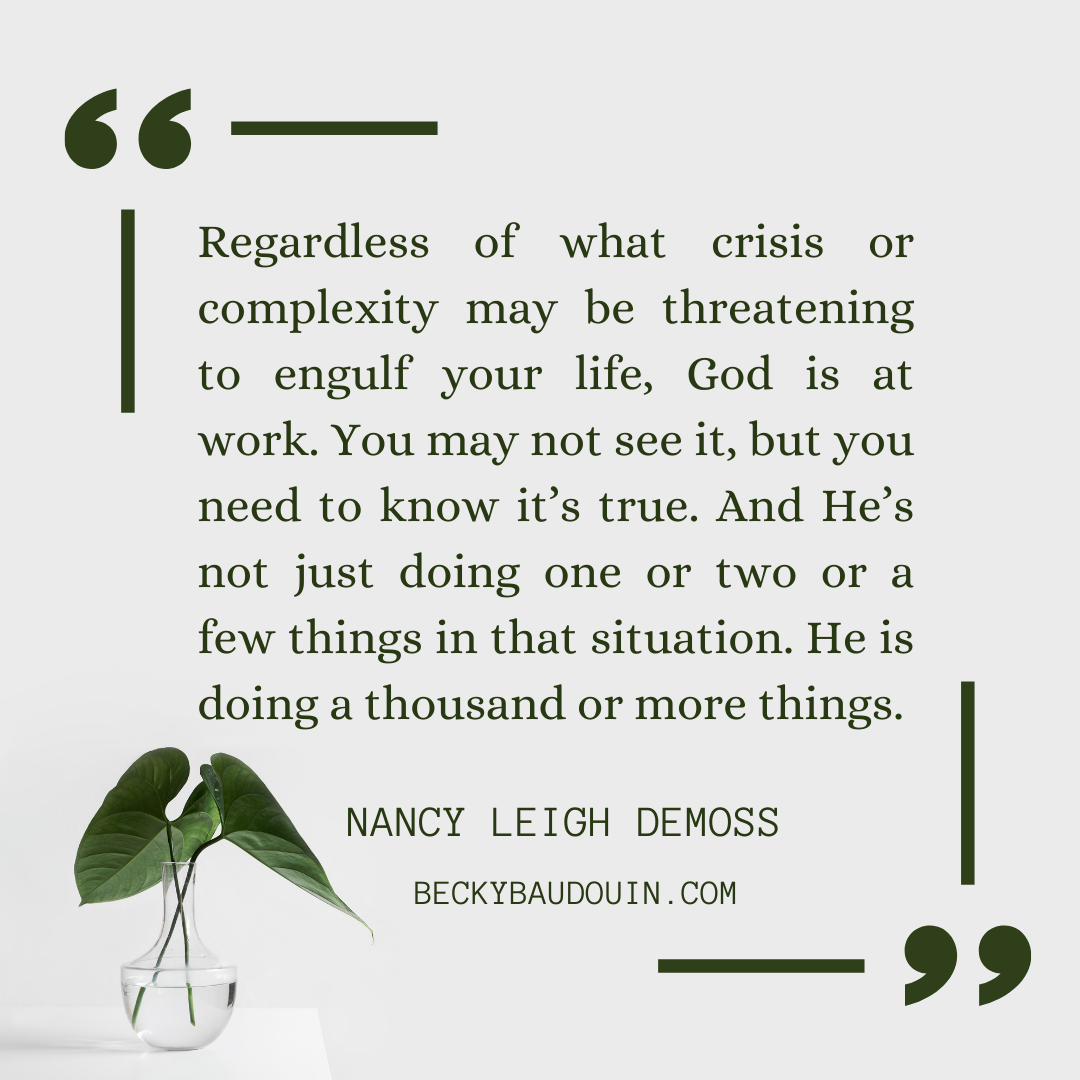
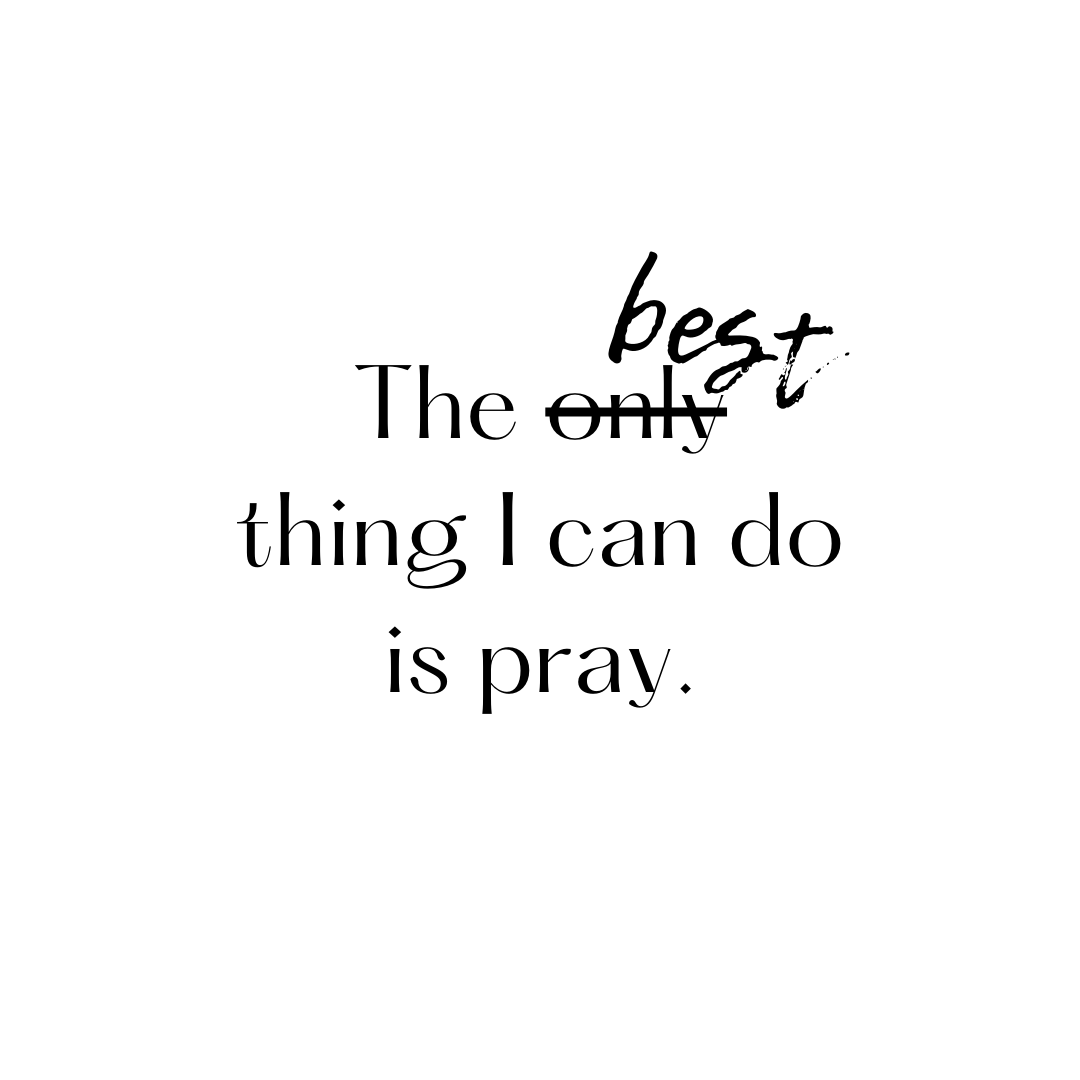

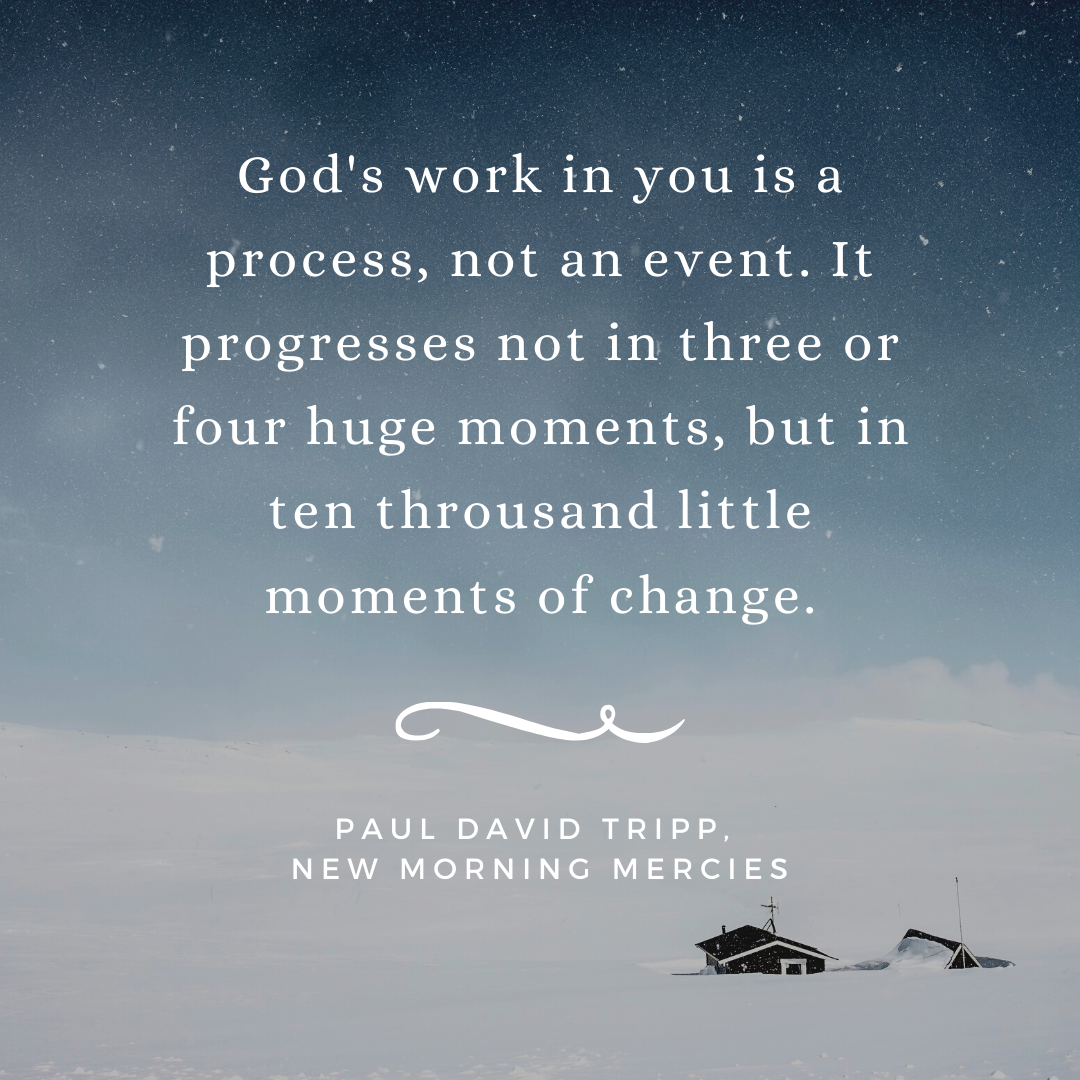

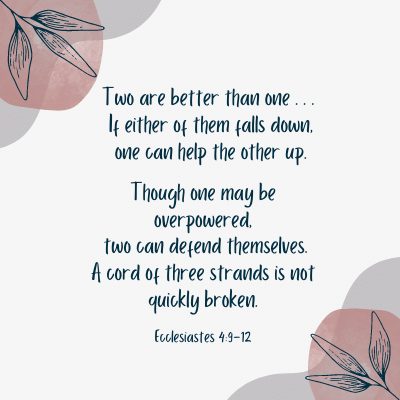
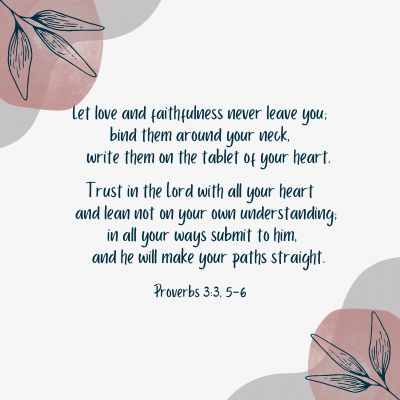
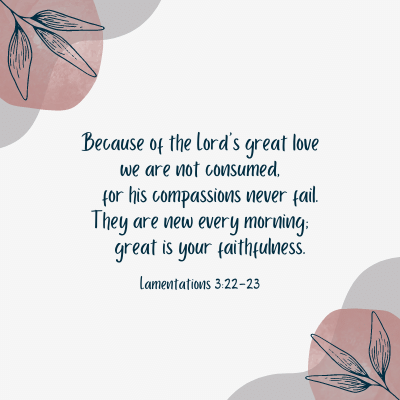
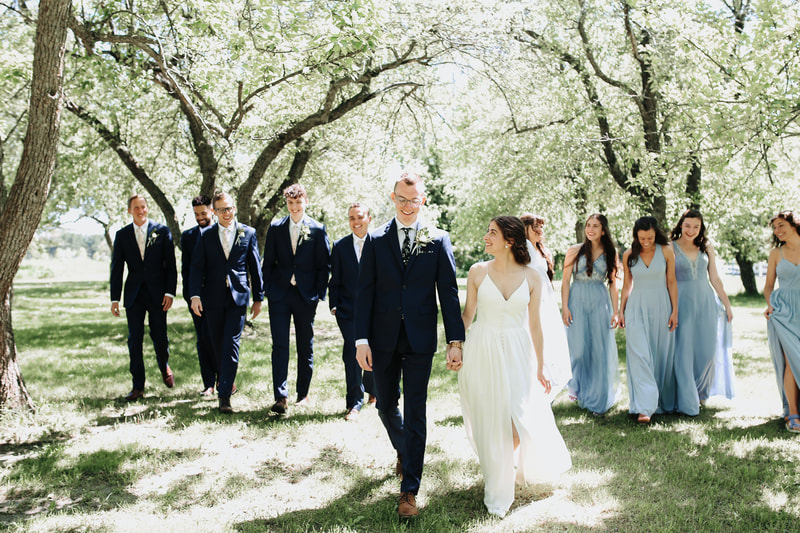
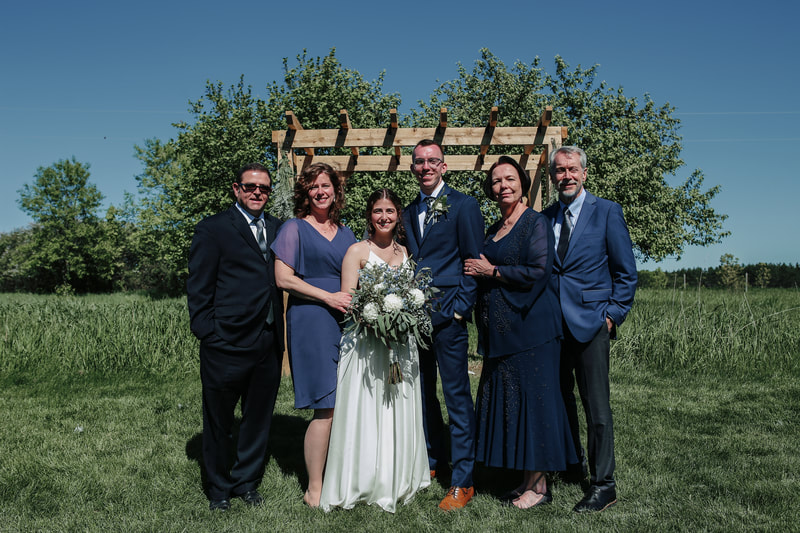



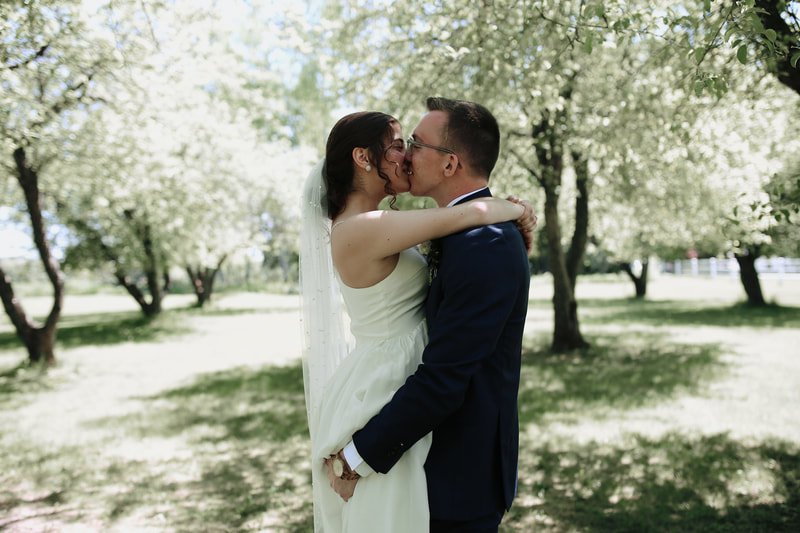
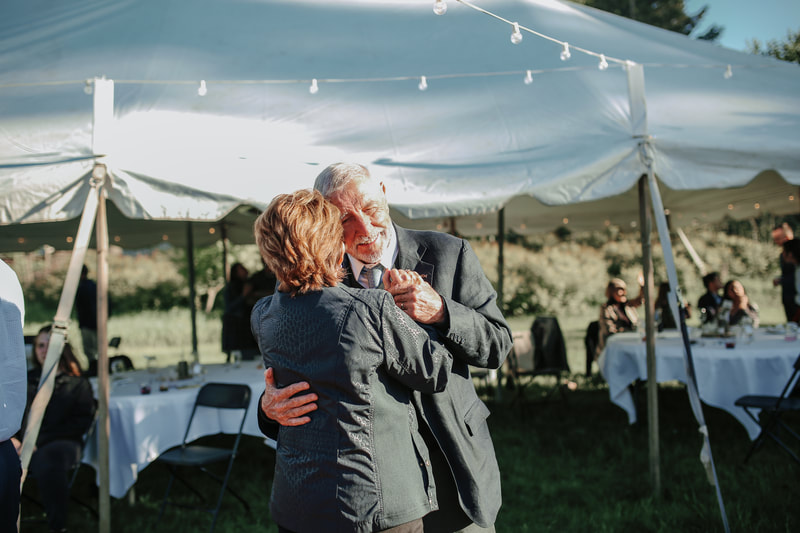
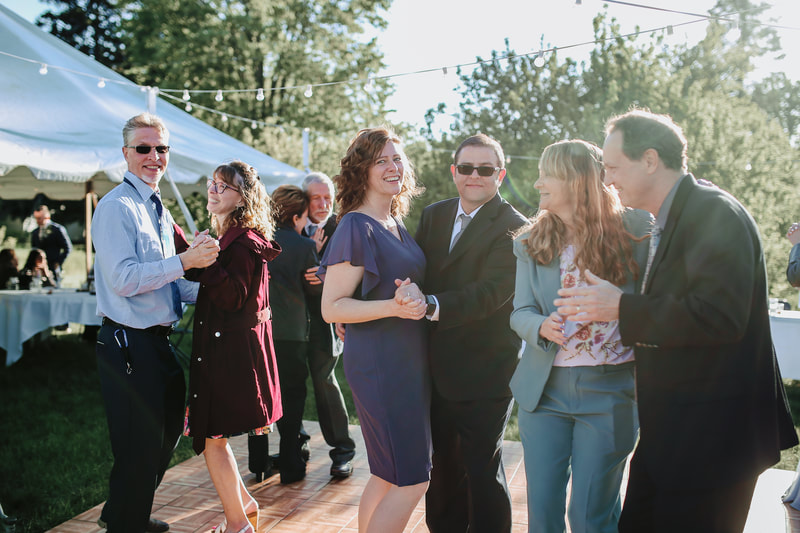
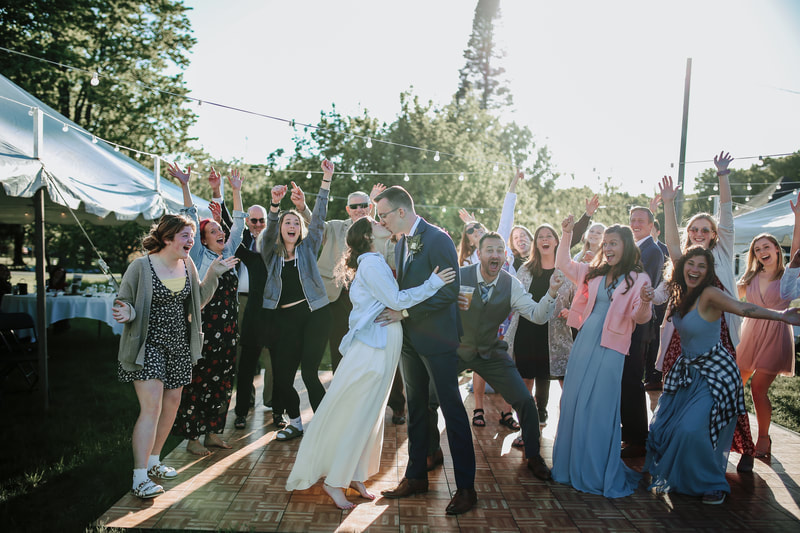
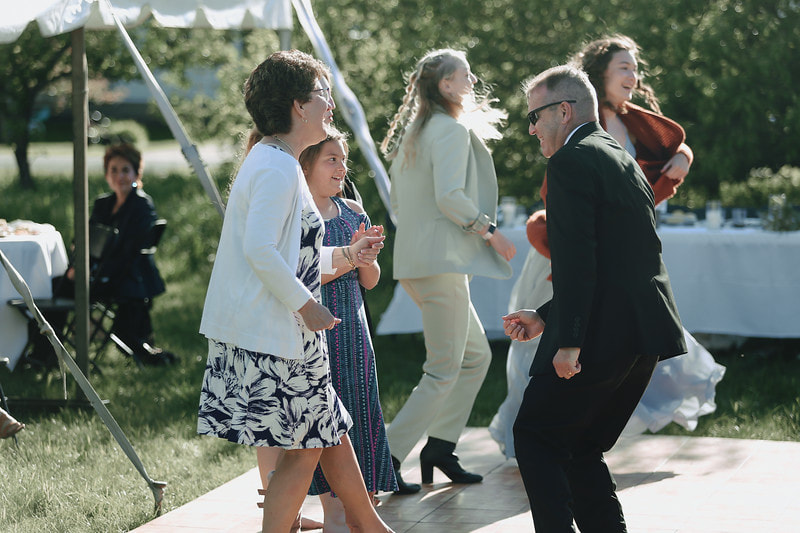






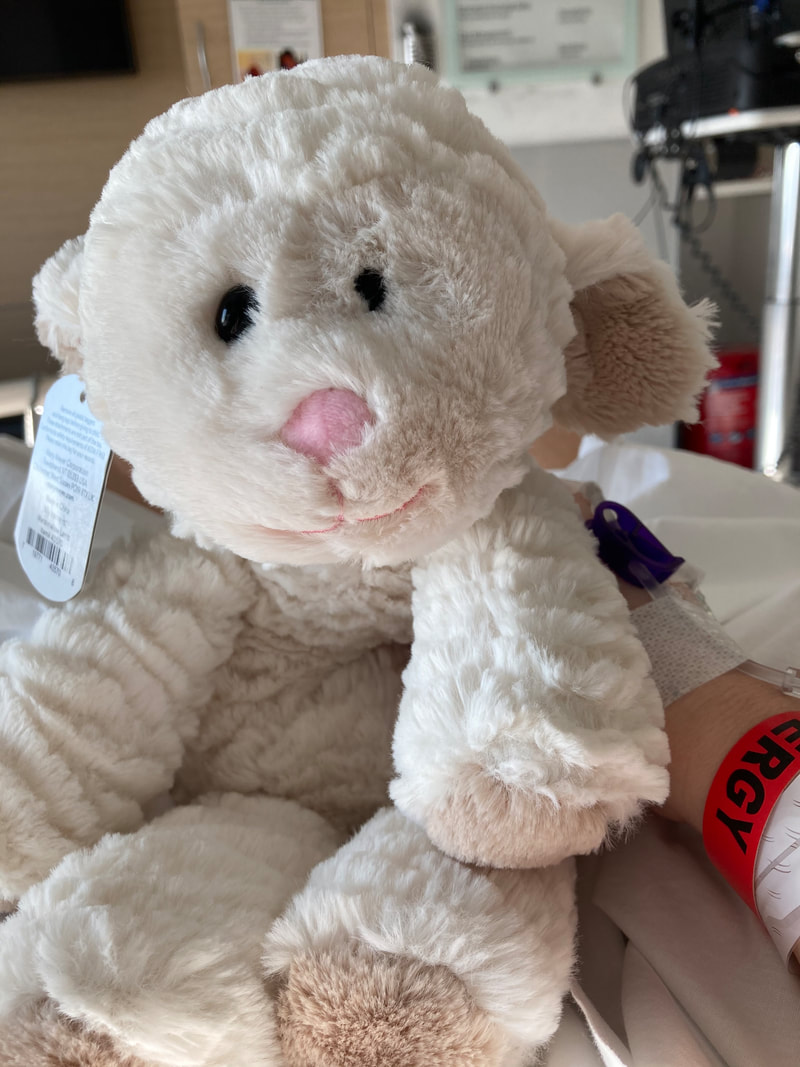
 RSS Feed
RSS Feed